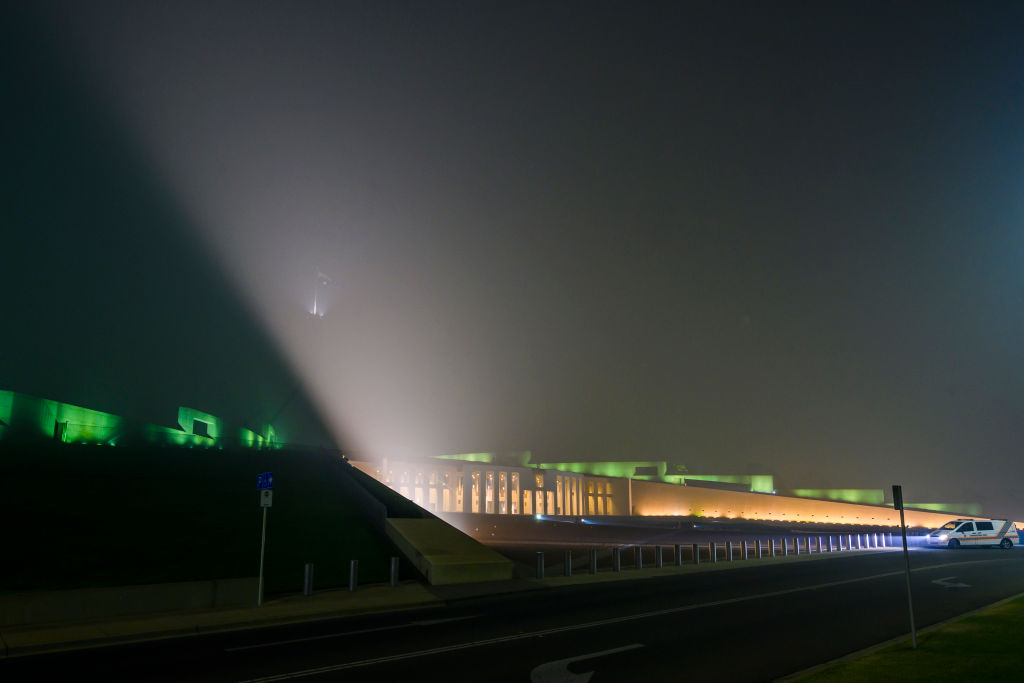
Australian democracy, Peter Hartcher observed in his
post in
The Strategist on ‘The real China choice’, ‘is a precious asset’. He’s right. Indeed, our constitution guarantees that the House of Representatives and the Senate must be ‘directly chosen’ by the people, and in multiple cases over recent decades the High Court has reinforced the importance of that direct choice.
Despite his framing, however, Hartcher is not altogether comfortable with the Australian people choosing their own representatives. Instead, his post argued, we should require ‘all MPs and Senators … to submit to a formal ASIO security clearance’, and anyone unwilling to submit themselves to a clearance ‘shouldn’t be allowed to sit in parliament to make laws’.
Let’s be clear: Hartcher would give ASIO a veto over parliamentary preselection. If anything is an existential threat to Australian democracy, it is the Orwellian prospect of preselection being subcontracted out to the spies.
It is important to reflect on the ramifications of such a proposal. Anyone who has been through an assessment for a high-level security clearance knows that it typically involves a searching analysis of the subject’s personal life—including their financial status, sexuality, medical history, relationships, internet habits, home life, and general attitude to the world. If the conclusion of that process is unfavourable to the subject, they will usually be provided with, at best, a summary of the reasons why they were denied a clearance. They may never know what was said about them, or by whom, and they may have limited ability to challenge the decision.
In Hartcher’s Australia, candidates for political office would be subject to this scrutiny. ASIO agents would be prying into the private lives of every candidate for every federal election. They would presumably deny some candidates the ability to run, and do so without giving detailed reasons or disclosing the full evidence on which the denial was based. The candidates, their supporters and their opponents may never know why the spooks weren’t willing to allow them to run for office. Their political future would be demolished.
And consider this: if we adopted the approach advocated in Hartcher’s post, how many public-spirited Australians would refrain from running for office
altogether because of a reluctance to sit down with ASIO to discuss their divorces, their youthful indiscretions, or their embarrassing medical conditions?
But we shouldn’t be concerned solely with the would-be candidates who fail Hartcher’s preselection or those who refrain from running. Even the politicians who
passed the Hartcher test would forever know that there might be a manila folder, sitting somewhere in ASIO headquarters, containing deeply sensitive and potentially embarrassing information on their personal lives. It bears emphasising that these politicians would be the same ones responsible for overseeing ASIO, and ASIO’s funding and responsibilities.
We expect our politicians to ask tough questions of the security services, and to hold them to account on our behalf. This is one of the ways in which they’re in a different position to the many departmental public servants who subject themselves to security clearances every year. One doesn’t need to be an avid reader of John Le Carré to imagine the potential consequences of an empowered ASIO holding files on every single politician and every single minister of the crown.
And, even if we forget the politicians, all of this should concern all of us, as citizens of the Commonwealth of Australia. Our right to vote is ‘precious’. Depriving us of the ability to choose who we want to represent us is something we should resent, especially when the deprivation would typically be on the basis of undisclosed or undisclosable information. Once we give the security services a veto over candidates for office, the slope becomes very slippery indeed.
Peter Hartcher has observed
elsewhere that ‘Australia is best served when democracy is thriving everywhere’. Doubtless there is a great deal that can and should be done to add integrity to our political system, to fight anyone who seeks unfair influence, and to stamp out corruption of any sort wherever it hides.
But in making ‘the real China choice’, we should make sure that our efforts to ‘choose Australia’ don’t wind up undermining the very democracy Hartcher wants to protect.
 Print This Post
Print This Post